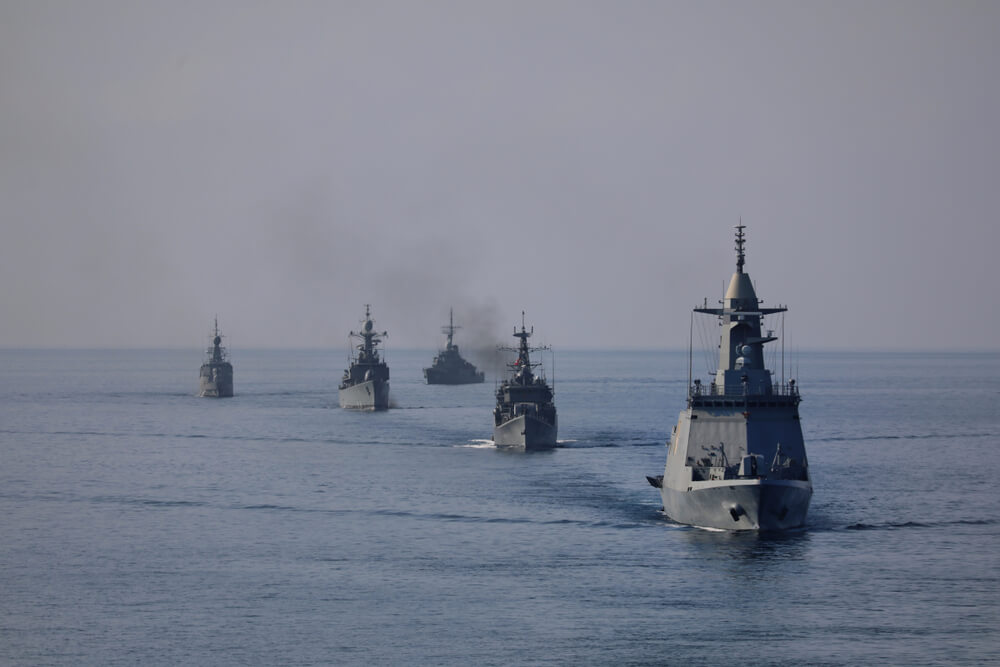"Please do not panic," Taiwanese President Lai Ching-te asked his compatriots when US President Donald Trump announced that Taiwan was also on the extensive list of countries for which the US will introduce higher import tariffs.
In Taiwan's case, the tariffs amount to 32% on exports worth more than USD 110 billion, which account for a quarter of Taiwan's total exports. However, semiconductors and electronic components, which account for two-thirds of Taiwan's exports to the US, were exempt from the US tariffs.
Regardless, Washington has not exactly sent a friendly message to Taipei with the new tariffs, just like it did not send a friendly message to the other important allies in the world, such as Europe or Israel.
Taiwan's president immediately formed a negotiating team to try to mitigate the new barriers and rejected the possibility of introducing counter-tariffs.
In doing so, they are following the same path taken by Israel, for example, during the visit of Prime Minister Benjamin Netanyahu to the White House on Monday.
President Lai's appeal to the Taiwanese people not to panic will continue to resound even after the probable agreement with the USA on the reduction or even abolition of import tariffs.
Chinese military pressure
The island is facing an increasing military threat from China, which, combined with the trade freeze between Taiwan and its most important ally—the US—is suddenly worsening Taipei's security position.
The Chinese People's Liberation Army conducted large-scale drills in the Taiwan Strait last week, including live-fire drills. They simulated attacks from various directions, encirclement, and blockade of the island's surrounding area. The manoeuvres also involved using barges to transport troops, which should represent a warning of a possible invasion.
Beijing has conducted no fewer than six major military manoeuvres near Taiwan since the second half of 2022
For Taiwan, this pressure is difficult, considering Beijing has conducted no fewer than six major military manoeuvres near Taiwan since the second half of 2022.
The last of them, the one last week, had, according to the announcement of the Chinese army, the aim of sending a "serious warning and powerful containment of 'Taiwan independence' separatist forces".
“The scale and complexity of these drills suggest that the PLA is building operational familiarity with an attack scenario,” said Arthur Chi, a military analyst at the Taiwanese Institute for National Defence and Security Research.
Economic isolation of the island
Beijing's strategy is to increase the likelihood of a full-scale attack, not only through massive military manoeuvres but also through constant informational and propaganda pressure. The primary target is Taiwan's pro-independence leadership, in particular President Lai, whom Beijing has labelled a "parasite" and "separatist."
The economic isolation of the island through a naval blockade by Beijing is one of the possible scenarios of Chinese escalation, although such a development would also cause considerable damage to China.
 By isolating Taiwan at sea, China would also block its most frequently used trade corridor - Chinese Navy
By isolating Taiwan at sea, China would also block its most frequently used trade corridor - Chinese Navy
By isolating Taiwan at sea, China would also block its most frequently used trade corridor. According to a recent Bloomberg projection, the blockade would understandably hurt Taiwan the most, whose economy would decrease by 12%, but China's economy would decrease by as much as 9% at the same time.
Enormous losses have so far been the main factor deterring Beijing from intervening forcefully against Taiwan, be it a military invasion or an economic and naval blockade.
Therefore, the economic pressure exerted on Taiwan by the other side, namely the allied side, goes hand in hand with the Chinese strategy of multiple pressures on the island, which it regards as part of its territory.
In the shadow of the trade war
But even more, it is the climate towards Taiwan that President Donald Trump brought with him, as he argued that Taiwan should rely more on its own forces for its security, i.e., pay for American protection.
While it is now almost certain that the vast majority of countries will enter into negotiations with Washington to lower import tariffs, it is even more certain that China will be a major exception, meaning that the tariff war will intensify further.
Beijing will use Trump's focus on getting justice in international trade to increase pressure on Taiwan
For Taiwan, this development means a new burden on its already very complex security and economic situation, to which it is exposed due to Chinese pressure.
Taipei can hardly expect to receive any concessions from the talks, even if Beijing and Washington eventually sit down at the negotiating table and agree on a trade regime.
Moreover, Beijing will use Trump's focus on getting justice in international trade to increase pressure on Taiwan and thus indirectly on the US as China’s main global military and economic rival.